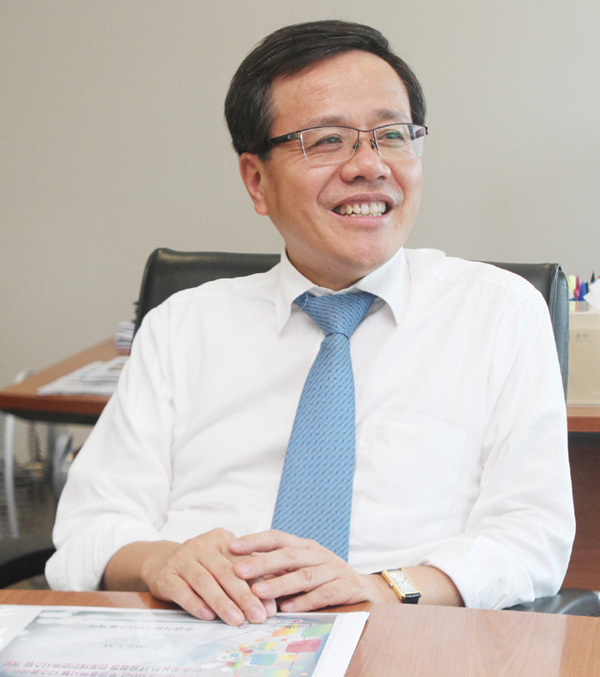The Korean government is slated to foster smart cars, wearable smart devices and smart safety systems by 2020.
“We have selected 13 industries for the government to focus on for the next six years based on the growth potential of markets, local companies’ competitiveness, employment and production,” said Cho Shin, head of the Planning Commission on Future Growth Engines and director of the Yonsei Institute of Convergence Technology.
 |
Cho Shin, director of Yonsei Institute of Convergence Technology |
Among the projects initiated by the Ministry of Science, ICT and Future Planning are a fifth-generation telecommunications network, intelligent robots, the Internet of Things and big data.
Under the plan, the government is expected to support industries through finance and legal reform.
Part of the financial support will go to public projects that an individual company cannot invest in, such as infrastructure for smart cars, Cho said.
“For the development of smart cars, not only vehicles but also infrastructure such as expressways should be smarter,” he said.
“The current technologies of smart cars are more focused on infotainment. However, the ultimate goal of smart transportation should be better communication between roads and cars.”
For instance, when a car travelling at 100 kilometers per hour stops suddenly, the road will detect the movement from sensors and send an alarm to the car behind it, he added.
“Starting with major expressways, this type of smart transportation will be partially realized by 2020,” the professor said.
Public safety management will also get smarter, he noted.
“For the current public closed-circuit televisions, you have to rewind the video to see the crime scene when an accident occurs. However, it will be smarter down the road.”
Some algorithms such as crime frequency and statistics can be installed on CCTV systems. When suspicious activity occurs, an alarming sign is sent to a control room to send a patrol car to the scene.
Apart from financial support, the plan also includes legal reforms to allow more companies to develop and test related technologies.
There are currently some legal issues for the development of future technologies including self-driving cars or remote medical treatment. While Google’s self-driving cars can be legally tested in some U.S. states, this is not allowed in Korea.
“Legal reform cannot be implemented overnight because of various sensitive issues. However, I believe laws and institutions will naturally follow when technologies are advanced and consumers need them.”
He also emphasized the importance of cooperation between large and small companies.
People some times think that mutual growth involves major companies helping small and medium companies, he said.
“However, it is not true. The growth of local SMEs also benefits large companies to help them to rely less on foreign parts and to have more alternatives,” the director said.
The Planning Commission on Future Growth Engines was set up last November with 130 professionals of academic and research institutions. The plan will officially be confirmed in March by the Joint Private-public Creative Economy Commission, which will then discuss the budget with relevant ministries.
By Shin Ji-hye (
shinjh@heraldcorp.com)








